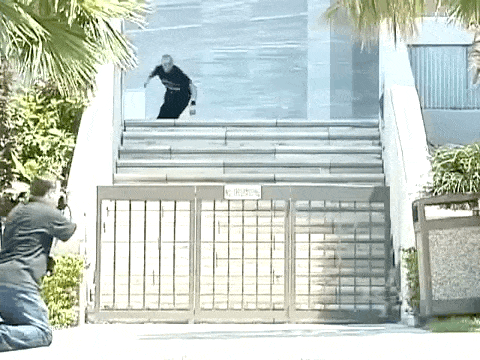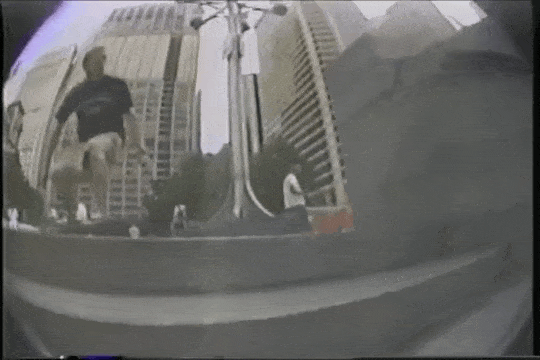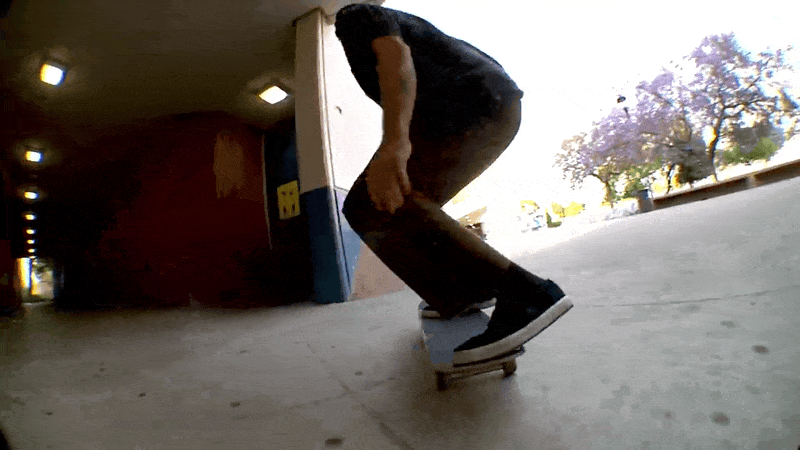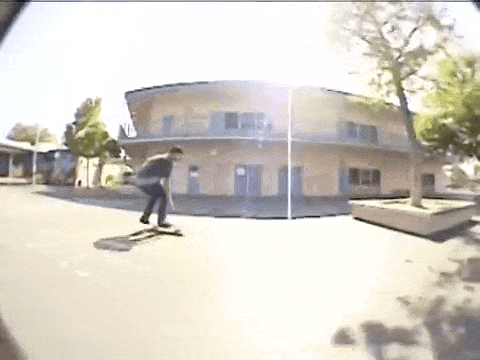The Rules of Skateboarding #23: Kevin "Spanky" Long
Illustration by Mike Gigliotti
For this months Rules of Skateboarding, Ian Browning spoke with Kevin “Spanky” Long about evolving your skateboarding as a professional, and what it’s like to really, actually, seriously love filming.
Yes, you read that correctly.
Do you remember who your favorite skater was during the City Stars days? Or who were you looking up to then?
At that time I was looking at Andrew Reynolds and Geoff Rowley, mostly. Even though it was right before I met them. Even Arto Saari. They all just felt so contemporary and cool.
Did you feel a lot of pressure to be a rail chomper as a kid who was starting to get put on?
Right around that time, I did. It didn't feel like pressure, it was more just what I aspired to do. I was learning how to skate in a way where each thing I did was pushing my skating. I didn't have to think about which direction I was taking it, I was just trying to do whatever tricks I could on bigger things. Just being like, ‘Wow, I love when people back lip rails, I want to learn how to back lip a rail.’ I was trying to find out what kind of skater I was.
I had already been skating for what felt like quite a bit, maybe I'd already been through different favorite skaters and stuff. Since I started, it was always rail guys like Jamie Thomas who were jumping off stuff. That was the time.
Who doesn’t love Jamie Thomas jumping off stuff?
You said you were figuring out who you were as a skater. When do you think you landed somewhere? Is there a part where you feel like you set your style in more concrete terms?
Um, no, because, I mean…I don't want to think about it too hard. I feel like that's the beauty of skating: you start out just trying to learn what you like, and then you take that to a certain place, you kind of assess, and then you're like, ‘Okay, now I'm building my next video part. Now I get to skate more of what I want to skate.’ Then you go through injuries, and you're like, ‘Wow, now I'm skating what my body can handle at the moment.’
It's just this natural, organic process until finally you start playing into your strengths and you're like, ‘What am I actually good at? What sets me apart?' Because I can no longer just push myself to do what’s hip right now.’ So it's hard for me to think of where I arrived at my style because it feels like a natural evolution. I think most people are like that, if you're lucky enough to keep doing projects where you have time to skate in a way that feels expressive for that moment.
Dan Drehobl’s influence on Spanky is clearly visible.
How much influence do you think you're garnering from teammates in the van?
A lot. I think that's a really important, profound part of the community of skating. Learning how to skate and progress, the guidelines of what’s just wack, or out of fashion, or boring, that's all just like seeping in. I love that aspect of it. Especially as you grow up and you're maybe a little less influenced by every video that comes out or what feels like ‘contemporary.’ You're still taking from who you're skating with. One person says, ‘Oh, man, this is getting played out.’ and it just soaks in to hear that from the people that you respect. It's almost more about what isn't cool than what’s aspirational.
To play off of that, in your Chrome Ball interview you mentioned feeling scrutinized by guys who are roughly the same age as you, skating huge rails, while you were skating banks, drawing bears, and drinking too much. What does it feel like to put out a part of steep bank tricks after years of filming handrail and stair tricks?
It was weird, because I didn't really want to continue what I felt was a conventional progression of bigger, longer rails and things like that. I was just not there physically, I wasn't practicing skating enough. So it's easy to say now that maybe I would have kept going, doing more rails and skating bigger stuff, if my body was there with me. It felt a little bit like I was compromising some of my potential, but at the same time, the stuff that I really was drawn to was starting to change. I was more into watching a Dan Drehobl part or like going back to old Gonz parts — those were sparking my interest at the time. So it was a little bit of everything: disappointment in myself, a little bit of wanting to try something new, and a lot of not thinking about it.
Is this the type of shit that you're learning on the fly, or did you have waist-high slappies in the old days?
I think it's absolutely learning things on the fly, and that's the part I love about it. It does feel like an evolution when, after decades of skating, you’re finding new things that challenge you, or learning a trick and applying it differently. Liking something that somebody's doing and not being able to do it that way, so you do something similar with the skills you got.
And the beauty of trying to construct a video part, trying to not repeat yourself, so you just naturally go into other lanes, but never very consciously. It's always just going out and skating, not necessarily making a plan, but being at a spot and being like, “I think I can do this here.”
Some people that I know are much better at making a plan and being like, “I want this part to be lines, and I'm wearing weird shorts.” I never could get my shit together to have some sort of mission statement. I'm just like, doing what I can.
I hear that. I like being able to trace a through line and say, ‘This person was probably watching this part a lot while they were filming their part.’
It's always different looking back on things. It's the same as when you’re looking back at a band and you think about what they do and then look at albums where they were clearly trying to do something else. In the moment, it can feel like that natural evolution of trying not to repeat yourself.
Whereas I feel like anytime I've done any part, it’s never been good enough to feel like, ‘Okay, this is the way I want it to look.’ I've just been like, ‘I'm skating as hard as I can.’ Even that time when I was skating a lot of steep banks, it just felt like I was struggling to get something that counts as a clip.
This definitely counts as a clip, Spanky.
Heath Kirchart skating ledges is absolutely worth top dollar.
Are you ever conscious about whether what you're trying is worth filming? I always think of just that SLAP joke about how everybody would be happy watching Gino shop for groceries, and while I think a lot of people are willing to watch cherished pros skate in any capacity, I also appreciate somebody like Rick Howard. He’ll have two tricks in 10 years and seems to have bowed away from it all. What do you think about that? Do you think it's worth continuing to skate in new directions once you've made your mark?
It's definitely a good question. It's something that applies differently to each skater and really, in my experience, comes down to how much you're actually skating, and if it’s a struggle to go out and film something. It's really cool when people just go out on top. I think bowing out gracefully and disappearing before you’re completely compromised by the natural aging process is cool as hell, but I would still pay top dollar to see Heath Kirchart skate a ledge every once in a while.
I'm so obsessed with skating, and I actually love to film. So filming stuff on the phone, or filming stuff with friends on a regular camera, like I tend to just film way more than I actually put out, just because I’ve enjoyed the process of doing it. I'm lucky enough to have people around me who are down to film stuff. So I skate five days a week, and most of those days, we just end up filming, and then it just gets sorted out later. I don't know whether or not I do a good job when it comes down to editing later, and putting out every single bit of that stuff, but I'm trying to hold myself to a standard.





